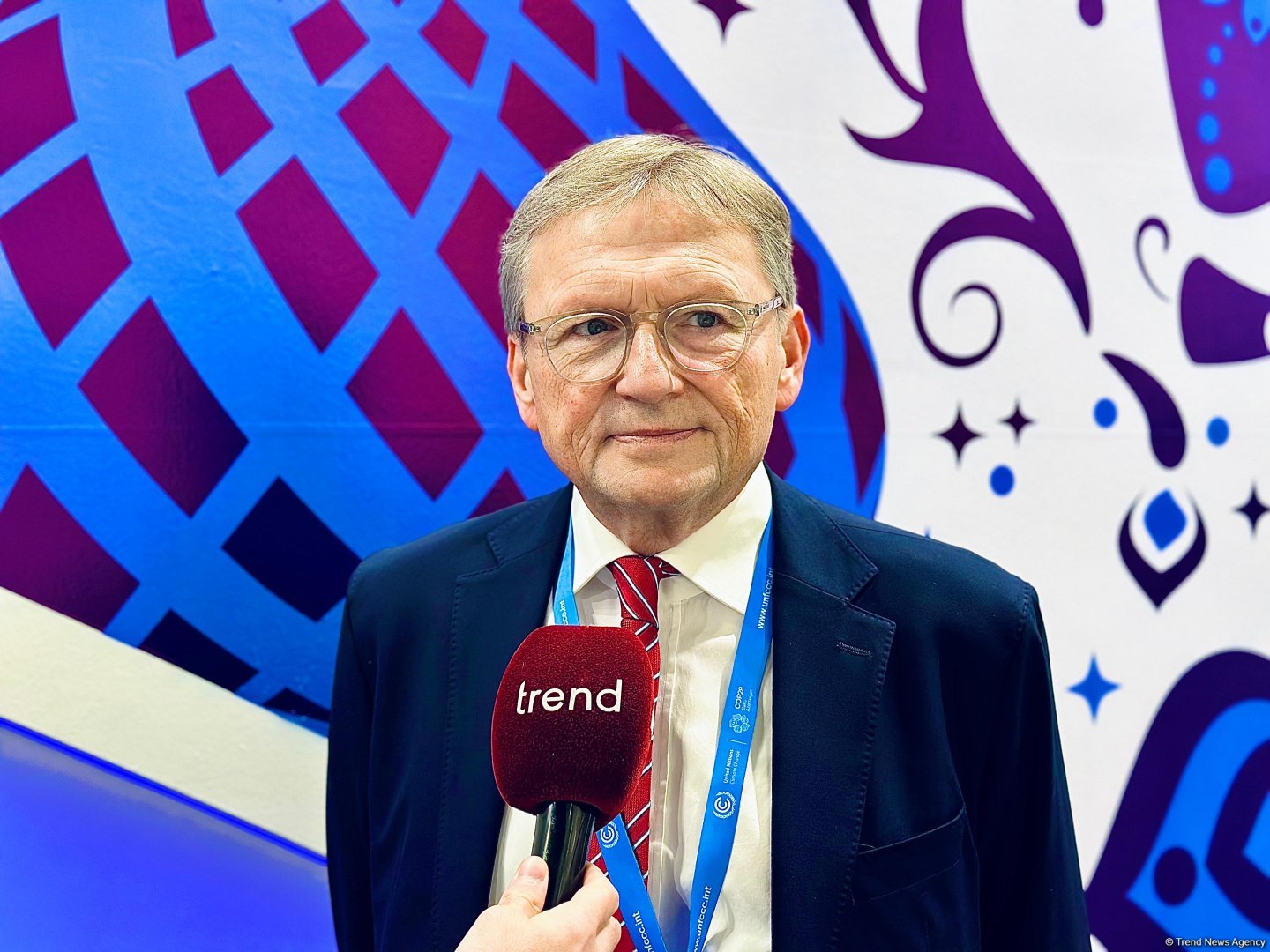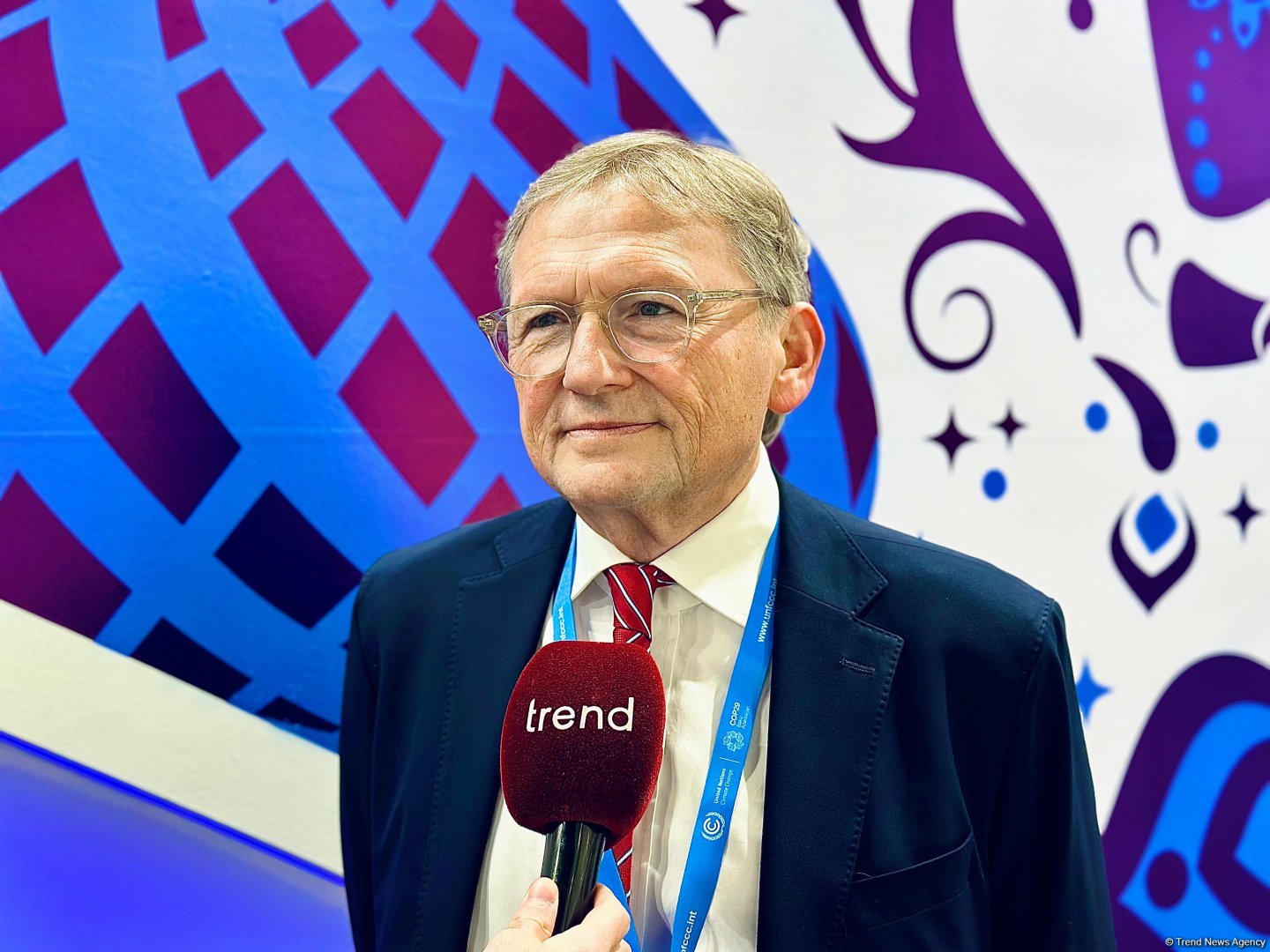BAKU, Azerbaijan, November 16. As part of COP29 in Baku, Trend News Agency proudly presents COP for Hope, a special project offering an unparalleled platform to hear from world leaders and trailblazers in politics, economics, science, and ecology, all united by a shared commitment to addressing today’s pressing climate challenges.
Today, we are honored to speak with Russian President's Special Representative for Relations with International Organizations to Achieve the Sustainable Development Goals Boris Titov.
In an exclusive interview with Trend Titov stressed that Russia and Azerbaijan are discussing the creation of unified carbon markets.
"We are very close countries—politically, economically, and socially. We share similar views on many issues. When it comes to the environmental agenda, we discuss joint solutions not only in a bilateral format but also within the frameworks of SCO (Shanghai Cooperation Organization) and BRICS (Brazil, Russia, India, China and South Africa). For example, the creation of unified carbon markets, or at least the harmonization of their requirements. This is an important step that will allow for the more active development of 'green' projects. This is one of the promising formats of cooperation," he said.
According to him, Azerbaijan and Russia have a very high level of economic cooperation.
"Firstly, our cooperation has always been historically very close. Millions of ties connect us—between the people, the nations of our countries, in economic, social, and cultural spheres. Even yesterday, at the opening of a carpet exhibition, Azerbaijani, Russian, Turkish, and other artists were represented. So today, we are connected by a large number of different ties.
Economically, new opportunities are opening up. We are talking about new transport schemes, such as the 'North-South' project—a major initiative currently underway. Joint ventures are working in various sectors: chemicals, machine engineering, agriculture. Therefore, today, we are closer than ever economically," noted Titov.
Speaking about the role of small and medium-sized businesses (SMEs) in the development of transport and logistics cooperation, especially within international corridors like North-South, the special representative emphasized that SMEs will greatly benefit.
"The project is large-scale and will greatly help small businesses because logistics will become much easier. Even goods intended for the Russian market will be delivered more cheaply. The same goes for deliveries to Iran. This is truly a major corridor.
Small businesses will not only gain logistical advantages but also receive additional orders. Maintaining such highways requires the involvement of many companies—from those engaged in routine repairs to food suppliers. Thus, small businesses always win," he explained.
Titov emphasized that both countries are discussing numerous projects.
"Various institutions are working actively today. First and foremost, the intergovernmental commission and the business council, which includes many entrepreneurs who find common ground. I myself have participated in meetings of the intergovernmental commission. It is serious work, led by two deputy prime ministers - Mustafayev and Ovechuk.
A lot of projects are being discussed, and every entrepreneur, if their project is well-prepared and brings benefits not only to business but also to both countries, is entitled to support and receives it," he said.
The special representative also pointed out that Azerbaijan and Russia are actively developing 'green' projects.
"There are many projects on both sides. These include alternative energy sources and issues related to the disposal of associated gas. There is active development in this direction today," said Titov.
According to him, small and medium-sized businesses can double or even triple their activity in joint ventures.
"Especially promising are agriculture and consumer goods. For example, winemaking: Russia has many small wineries today that could supply their products to Azerbaijan. In Azerbaijan, this industry is also developing rapidly. Through joint efforts, we can create a unified winemaking market," he emphasized.
Titov also mentioned that there are no significant barriers in trade between Russia and Azerbaijan.
"There are very few barriers. We have a free zone, no tariffs, which simplifies trade," he said.
The special representative highlighted three promising sectors for further partnership in small and medium-sized businesses between the two countries.
"First and foremost, these are agriculture, the food industry, and winemaking. The restaurant business and catering are also promising. There are many Azerbaijani restaurants in Moscow, and Russian restaurants are beginning to appear in Azerbaijan. There is huge potential here. So, I assess the prospects for small and medium-sized businesses between our countries as very large," he concluded.
The 29th session of the Conference of the Parties to the UN Framework Convention on Climate Change (COP29) opened on November 11. COP29, which is being held at the Baku Olympic Stadium, will continue until November 22. It is the largest event organized by Azerbaijan to date, and the first time in the region that it is being held in Azerbaijan.
The key expectation from COP29 is to agree on a fair and ambitious New Collective Quantified Goal (NCQG) on climate finance.
A total of 14 initiatives have been put forward by the COP29 Chairmanship.
Stay up-to-date with more news on Trend News Agency's WhatsApp channel










